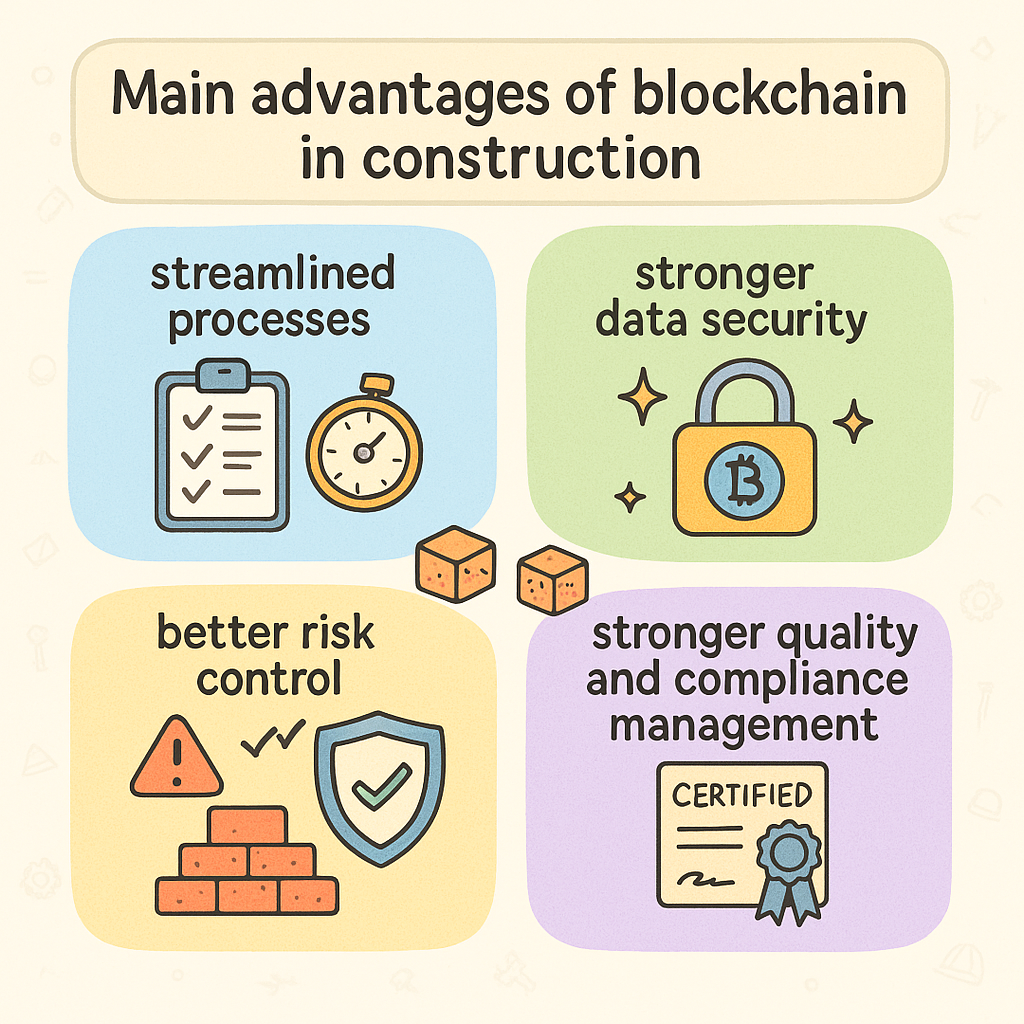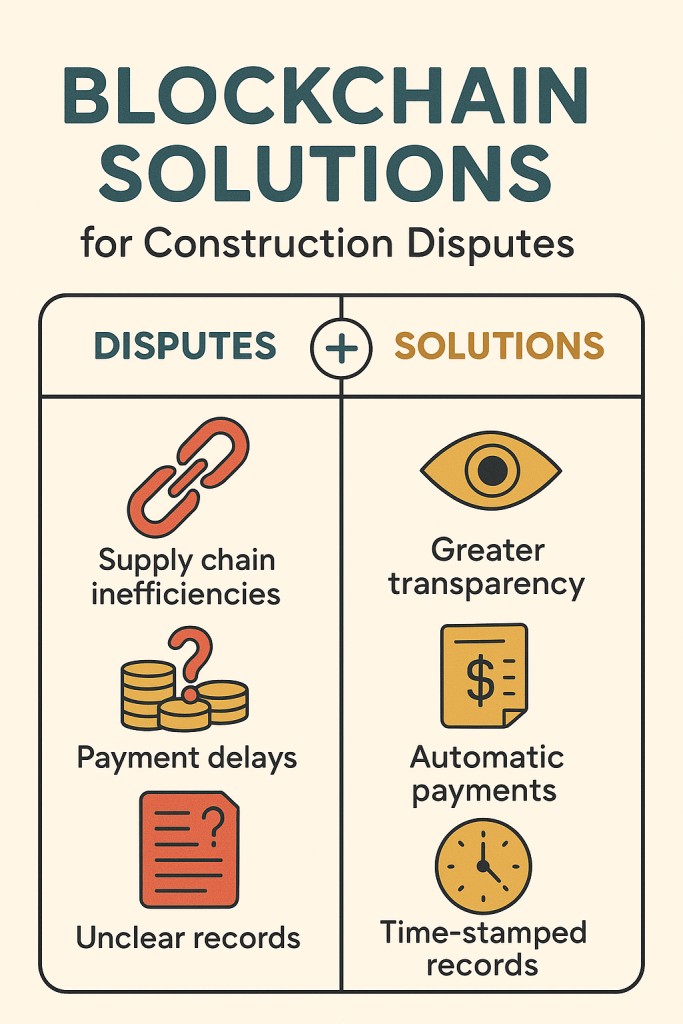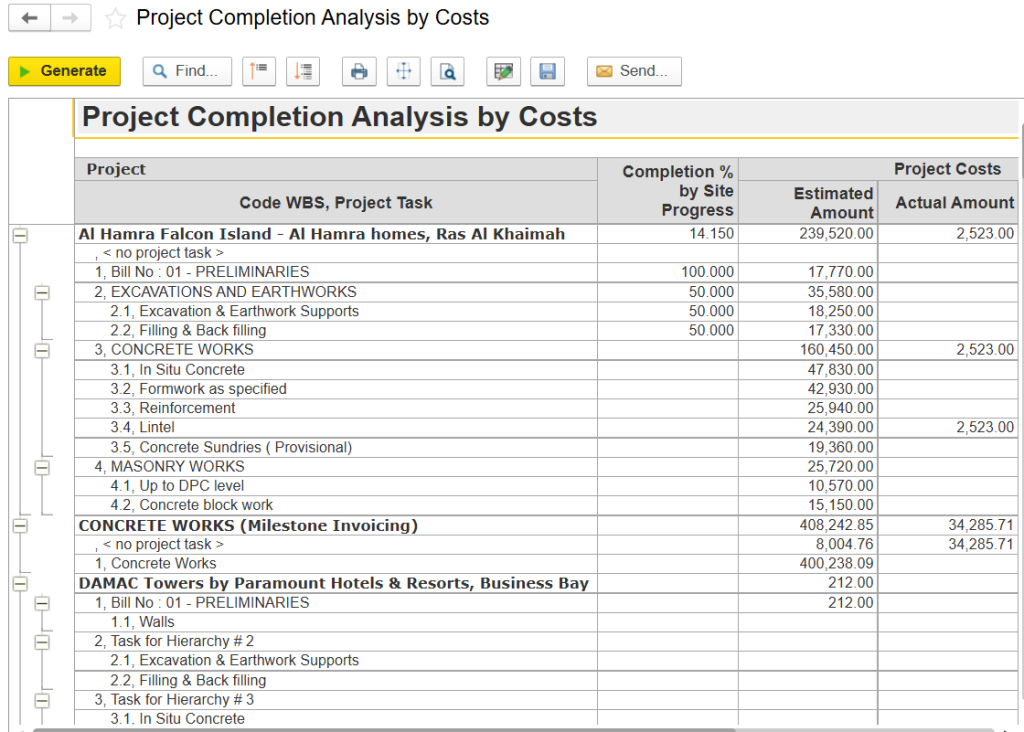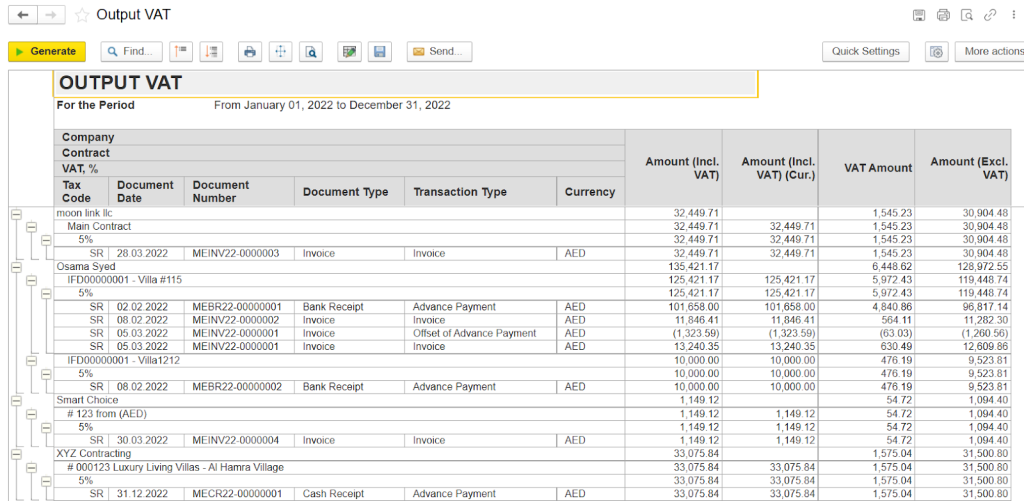In construction projects, inefficiencies in the supply chain often lead to
cost overruns, delays, and disputes. Traditional systems rely heavily on fragmented data and manual processes, which makes it difficult to track materials, validate suppliers, or resolve conflicts quickly. This lack of transparency not only erodes trust between stakeholders but also adds significant financial risk.
The market for blockchain in construction is projected to expand at a compound annual growth rate of more than 58% between 2021 and 2031[?].
This surge reflects the industry's rapid recognition of the value of blockchain technology in construction. By providing tamper-proof records, automated contract execution, and complete traceability, blockchain is emerging as a practical solution to address long-standing inefficiencies and improve confidence across the supply chain.
The Role of Blockchain in Construction Supply Chain Management
Traditional construction supply chains depend on siloed systems, emailed spreadsheets, and manual approvals. Information about specifications, purchase orders, delivery notes, test certificates, and invoices is often stored in different locations and formats. This slows down decisions and creates room for disputes.
Implementing blockchain technology in construction changes the operating model. A shared, permissioned ledger gives every authorized stakeholder the same synchronized record of all key components:
-
Events
-
Design changes
-
Orders
-
Dispatch
-
Delivery
-
Inspections
-
Payments
As a result, it creates a single source of truth that is time-stamped, tamper-evident, and auditable. This is the practical core of how blockchain technology can be used in construction projects to reduce risk and accelerate handoffs.
Decentralization and Security
Blockchain replaces a single, central database with a distributed ledger replicated across multiple nodes (e.g., owner, main contractor, key suppliers, consultant). Each transaction is cryptographically signed and linked to the previous one, so alterations are detectable and rejected without network consensus.
In a blockchain in construction setup, you typically operate a permissioned network (role-based access) so commercially sensitive data is shared only with relevant parties while maintaining a complete audit trail.
In day-to-day operations, this translates to:
-
Certificates and approvals: Mill test certificates, conformity declarations, and inspection records can be hashed and stored on the ledger so that any later changes are immediately visible.
-
Design and scope changes: Variations and addenda are logged with immutable timestamps, clarifying exactly when and by whom they were approved.
-
Financial integrity: Progress payments, retention releases, and change order valuations are locked to verified deliverables, reducing fraud and unauthorized edits.
These safeguards lower exposure to tampering, prevent “version of truth” conflicts, and allow quicker forensic checks when issues arise, core benefits for the potential of blockchain technology for construction management.
Greater Transparency and Material Tracking
Blockchain makes material flow a fully traceable chain of custody. From sourcing to site installation, each step is recorded with time, location, and metadata. The process follows a clear path: manufacture → dispatch → customs → yard → site gate → installation area.
QR or RFID tags, often connected with
IoT devices, link physical items to their digital records, creating a permanent trail of what was delivered, when, by whom, and under which specification.
Key advantages include:
-
Authenticity and compliance: Materials can be verified for origin and certifications before use, limiting counterfeit or non-compliant supplies.
-
Delay diagnostics: If an item stalls in transit, the ledger pinpoints the last confirmed handoff, helping teams recover quickly.
-
Audit readiness: Instead of reconciling scattered documents, auditors access a complete, verified movement history in minutes.
This level of transparency not only prevents disputes but also strengthens collaboration by giving every stakeholder equal visibility.
Automation Through Smart Contracts
Smart contracts encode business rules that execute automatically when conditions are met. In construction supply chains, this eliminates manual bottlenecks in procurement, compliance, and payments.
Examples of practical use include:
-
Delivery-linked payments: Once delivery is confirmed against a purchase order and the required certificates are verified, payment is released automatically.
-
Compliance gating: If a required document (e.g., CE mark, sustainability certificate) is missing, the system blocks downstream actions until it is resolved.
-
SLA enforcement: Late deliveries, partial shipments, or quality non-conformities can automatically trigger agreed penalties or corrective actions.
-
Change order management: Approved variations update contract quantities and unit rates on-chain, ensuring subsequent deliveries and invoices reflect the latest scope.
The outcome is fewer administrative handoffs, fewer errors, faster procurement cycles, and more predictable cash flow, all showing how blockchain technology can be used in construction projects to align complex supply chains more efficiently.
Main Advantages of Blockchain Technology in Construction
Adopting blockchain in construction is not about experimenting with new tech; it’s about solving persistent supply chain issues that cost projects both time and money. By digitizing records, automating key processes, and securing data, blockchain offers advantages that directly impact project delivery and stakeholder confidence.
Streamlined Processes
Traditional procurement involves layers of approvals, duplicated paperwork, and delays in verifying documents. Blockchain simplifies these interactions by creating a shared ledger accessible to all authorized stakeholders.
-
Faster purchasing and deliveries: Orders, confirmations, and payments are logged instantly, cutting out the lag caused by email trails or manual reconciliations.
-
Less paperwork: Smart contracts automatically handle compliance checks and payment triggers, reducing administrative workload.
-
Better adherence to project timelines: Automated approvals and faster verifications minimize bottlenecks, keeping deliveries aligned with project schedules.
Stronger Data Security
In supply chains where sensitive data like pricing, supplier credentials, and certifications is constantly exchanged, security breaches can cause financial and reputational damage. Blockchain protects this information by encrypting every transaction and linking it chronologically to the previous one.
-
Tamper-proof records: Any attempt to alter data is immediately visible to all stakeholders.
-
Controlled access: Permissioned blockchain networks ensure that only approved participants can view or update records.
-
Trust among parties: Shared, secure data reduces the reliance on middlemen and fosters direct trust between contractors, suppliers, and clients.
Better Risk Control
Construction projects often face disputes over material provenance, delivery delays, or contract terms. Blockchain minimizes these risks by ensuring that an immutable record can back every claim.
-
Verified origins of materials: Stakeholders can confirm sourcing before materials are used onsite.
-
Clear responsibility in disputes: When issues arise, time-stamped records show exactly who approved what and when.
-
Lower fraud exposure: With every transaction visible and verifiable, fraudulent substitutions or false claims are harder to conceal.
Stronger Quality and Compliance Management
Compliance failures and quality lapses not only increase costs but also threaten safety and regulatory approvals. By storing certifications and quality documents directly on the blockchain, construction teams gain a reliable system of record.
-
Verified certifications: Regulatory documents, test results, and conformity declarations are securely stored and easy to retrieve.
-
Real-time quality checks: Materials can be validated at each stage of the supply chain, from manufacturer to site installation.
-
Rapid issue identification: Any non-conformance can be detected quickly, with the history of the affected batch readily available for corrective action.
Together, these advantages highlight the potential of blockchain technology for construction management, demonstrating how it addresses inefficiencies, strengthens security, and creates greater accountability across complex supply chains.
Reduce costs and avoid shortages
Optimize procurement with FirstBit
Request a demo
Practical Uses of Blockchain in Construction
While the advantages of blockchain sound promising in theory, their real value lies in how they are applied to daily operations. Below are some of the most practical and high-impact uses of blockchain technology in construction, especially within
supply chain management.
Over 30% of construction disputes are caused by supply chain inefficiencies and unclear records[?]. Blockchain directly addresses these issues by creating transparent, verifiable, and time-stamped records that reduce ambiguity and strengthen accountability.
Source Materials
Sourcing is one of the most critical yet vulnerable parts of construction supply chains. Contractors often face difficulties verifying where materials originate, whether they meet required standards, or if substitutions occur along the way. Blockchain ensures that each procurement step is permanently logged, creating transparency from supplier to site. This helps project teams maintain confidence in the authenticity and sustainability of materials.
-
Transparent procurement: Each purchase order and delivery confirmation is permanently recorded, ensuring accountability for all transactions.
-
Ethical and sustainable sourcing: Contractors can verify that materials come from certified suppliers, reducing the risk of environmental or labor-related compliance issues.
-
Reduced fraud: Immutable records make it easier to detect counterfeit or substituted materials before they enter the project.
Manage Contracts
Contracts in construction are complex and prone to misinterpretation, leading to disputes and delays. Blockchain allows these agreements to be automated through smart contracts, ensuring terms are enforced exactly as intended. This reduces dependence on manual oversight and builds trust between all parties involved.
-
Smart contracts: Conditions such as “materials delivered and certified = payment released” can be executed automatically.
-
Fewer disputes: Contractual obligations are enforced digitally, limiting the chances of missed deadlines or withheld payments.
-
Efficiency gains: Automated processing shortens payment cycles and reduces administrative bottlenecks.
Verify Suppliers
Selecting reliable suppliers is essential for project success. Traditional vetting processes often rely on limited references and paperwork, which can be falsified or incomplete. Blockchain makes it possible to build and maintain verified supplier profiles that track performance history, compliance status, and certifications over time.
-
Verified supplier profiles: Supplier information and records are securely stored on-chain, creating a digital identity that cannot be altered.
-
Better vetting: Teams can easily check whether a supplier has a history of late deliveries, poor quality, or non-compliance.
-
Stronger partnerships: Reliable suppliers gain credibility faster, while unverified or inconsistent vendors are filtered out early.
Handle Disputes Better
Disputes in construction are often caused by missing documents or differing versions of the truth. With blockchain, every stakeholder has equal access to the same verified data, which reduces confusion and speeds up resolution. Permanent, time-stamped records act as neutral evidence that all parties can trust.
-
Time-stamped logs: Records of approvals, deliveries, and payments provide clear evidence when issues arise.
-
Equal access to data: Stakeholders work from a single, verified source of truth, reducing conflicts over inconsistent information.
-
Faster resolution: Evidence is readily available, minimizing project delays caused by prolonged dispute processes.
Dispute resolution and accountability are significantly related to Blockchain implementation for supply chain management in construction[?].
Control Quality
Quality assurance is a persistent challenge in construction, especially when materials pass through multiple intermediaries before reaching the site. Blockchain creates an unbroken chain of records for every batch, ensuring that compliance and quality checks are verifiable at each stage. This improves accountability and allows for quicker responses when problems occur.
-
Continuous tracking: Materials can be monitored from production through to site delivery, ensuring standards are maintained throughout.
-
Verified certifications: Test results, regulatory documents, and conformity approvals are stored securely and can be retrieved instantly.
-
Data-driven improvements: Historical blockchain records help identify recurring quality issues and support continuous improvement.
Quality assurance and compliance are significantly related to Blockchain implementation for supply chain management in construction[?].
Challenges to the Adoption of Blockchain in Construction
Key construction supply chain disputes and how blockchain resolves them
Although the potential of blockchain technology for construction management is significant, real-world implementation is not without obstacles. Many firms recognize the benefits but struggle when it comes to integrating blockchain into day-to-day operations.
The challenge often lies less in the technology itself and more in adapting existing practices, training people to use new systems, and navigating an uncertain regulatory environment. Unless these barriers are addressed, companies risk stalled pilots, low adoption rates, or limited returns on investment.
Process Redesign
Most construction companies operate with established workflows that rely on spreadsheets, emails, or legacy ERP systems. Introducing blockchain requires redesigning these processes so that transactions, approvals, and records flow through the ledger. This change can be disruptive if not planned carefully. Companies need to assess which parts of their supply chain benefit most from blockchain and then phase adoption gradually to minimize disruption.
Digital Literacy
For blockchain to work effectively, every stakeholder, including suppliers, contractors, consultants, and even regulators, needs to understand how to use the system. Lack of digital literacy can slow adoption and create gaps in the chain. Training programs, simplified user interfaces, and strong vendor support are essential to ensure that all participants can use the technology confidently.
Regulatory and Compliance Issues
The regulatory framework for blockchain is still evolving, especially in industries like construction, where contracts and compliance are tightly linked to legal requirements. Questions about the legal standing of smart contracts, data privacy, and cross-border transactions remain. Until regulations mature, companies must carefully evaluate the legal implications of blockchain-based records and ensure their use complies with current laws and standards.
Choose the best suppliers
Request a demo
FirstBit ERP – A Smarter Approach to Supply Chain Management
While blockchain offers powerful tools for transparency and accountability, it does not operate in isolation. For construction firms, the real value lies in integrating these capabilities into the broader ecosystem of
project management,
procurement, and
finance. This is where FirstBit ERP provides a practical bridge.
FirstBit ERP is designed specifically with construction businesses in mind and offers features that directly support many of the same goals blockchain aims to achieve: streamlined workflows, secure records, and stronger financial control. Embedding digital processes into daily operations helps companies overcome the adoption challenges discussed earlier.
-
Integrated BOQ and procurement management: FirstBit ERP allows construction firms to upload
Bills of Quantities (BOQ) directly into the system, linking them to procurement orders, budgets, and actual expenses. This ensures that material requirements and costs are transparent and controlled across the project lifecycle.
-
Automated approvals and compliance tracking: The platform supports customizable approval workflows, so procurement, HR, and finance processes are routed automatically to the right people. This reduces manual intervention, speeds up decision-making, and minimizes the risk of compliance gaps.
-
Cost and cash flow visibility: With all project-related expenses tracked in real time, companies can analyze project profitability, manage cash flow, and detect cost overruns early, something that complements blockchain’s role in reducing disputes and improving accountability.
Project Cost Analysis in FirstBit ERP
-
Regulatory alignment: FirstBit ERP is accredited by the UAE Federal Tax Authority (FTA), ensuring compliance with VAT requirements. For construction firms operating in the GCC, this is critical to avoid regulatory risks.
Output VAT report in FirstBit ERP
By integrating ERP capabilities with the potential of blockchain, construction companies can move beyond theory and implement systems that provide both operational efficiency and strategic oversight. FirstBit ERP offers a ready-made foundation to make this transition smoother and more effective.
Conclusion
The construction industry has long struggled with fragmented supply chains, where information gaps lead to cost overruns, disputes, and delays. Blockchain brings a new way of working, one where data is shared, secure, and verifiable across all parties. But the real opportunity lies in how businesses choose to adopt it. Firms that combine blockchain with robust management systems like ERP will not only reduce inefficiencies but also reshape how projects are delivered in the future.
For companies in fast-moving markets like the UAE, where competition is intense and compliance is non-negotiable, the choice is clear: those who embrace digital tools early will set the standard for transparency and efficiency, while those who delay risk being left behind. Blockchain is not a silver bullet, but it is a powerful step toward building supply chains that are more accountable, more resilient, and better prepared for the demands of modern construction.
Get top-quality materials
Streamline procurement with FirstBit
Request a demo
FAQ
What is blockchain technology in construction?
Blockchain in construction is the use of a decentralized digital ledger to securely record and verify transactions across the supply chain. It improves transparency, accountability, and security in areas like procurement, payments, and material tracking.
What are the benefits of blockchain for construction supply chain management?
Key benefits include greater transparency and traceability, reduced administrative work, stronger trust between stakeholders, lower risk of fraud, and real-time tracking of materials and payments.
Can blockchain help reduce delays and cost overruns in construction?
Yes. By giving real-time visibility into the supply chain and automating key processes, blockchain helps identify bottlenecks early and reduces delays from disputes or inefficient paperwork.
How does blockchain improve transparency in construction procurement?
It creates an immutable record of bids, contracts, deliveries, and payments. This ensures auditability, makes irregularities easier to detect, and builds trust among project participants.
Umme Aimon Shabbir
Editor at First Bit
Aimon brings a deep understanding of the modern construction business to her articles by providing practical content.
















